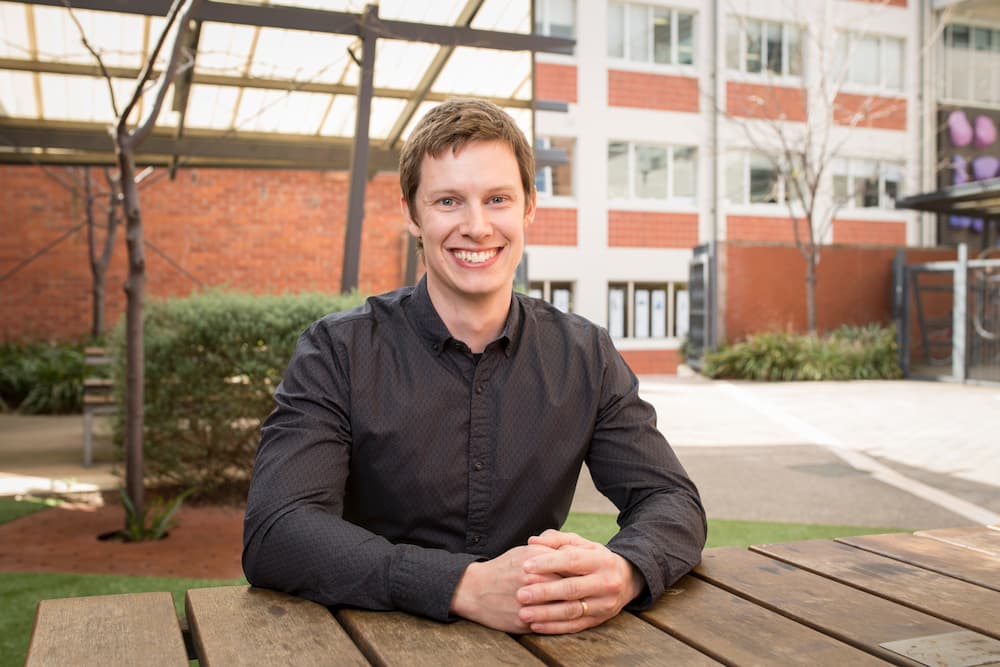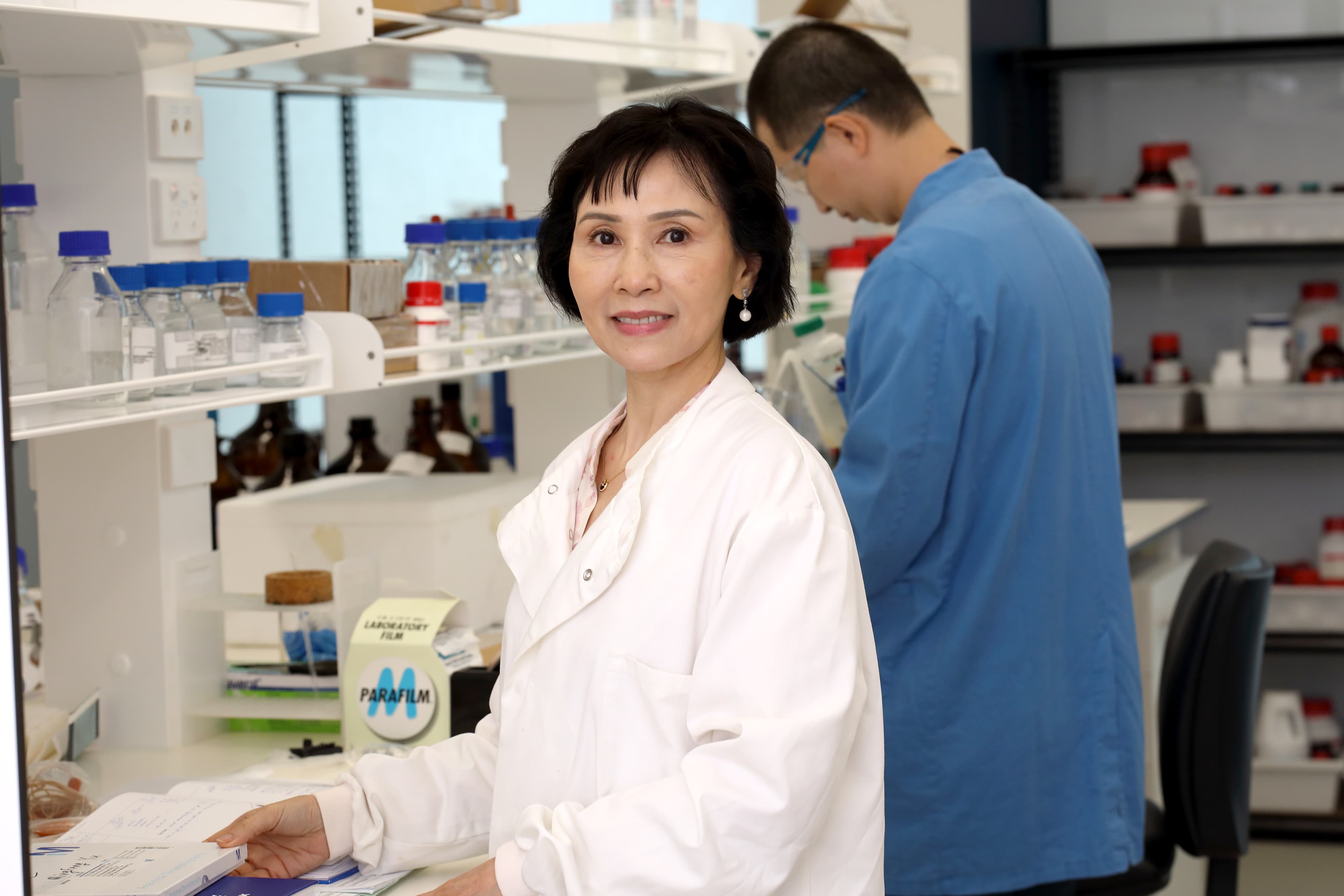01 July 2018

Dr Aidan Cousins
Doctorate by Research Engineering (Minerals and Materials)
At the forefront of UniSA’s cancer research movement are our researchers dedicated to tackling one of our society’s most challenging and pervasive diseases – cancer – creating a groundswell of expertise unsurpassed in the State.
For Dr Aidan Cousins, talent and hard work were rewarded last year as he was the recipient of UniSA’s prestigious Norton Jackson Material Science and Engineering Medal for the translation of world-leading cancer research into industry.
This encouragement has led to him spearhead the development of a tool to help cancer doctors pinpoint the accuracy of surgery to remove cancers that have spread into other areas of the body, leading the project alongside Professor Benjamin Thierry from UniSA’s Future Industries Institute.
This revolutionary new device called the Ferronova Probe will solve a clinical problem in the successful treatment of cancers using magnetic tracers.
“Current procedures to find cancers that have spread through the lymphatic system into lymph nodes include injecting radioactive tracers into the tumour area that can be used to find the migration paths of cancer cells,” says Dr Aidan Cousins.
“There are problems with this approach due to the limitations of current technologies and the complexity of how lymph nodes are used by different cancers to spread.
“There are problems with this approach due to the limitations of current technologies and the complexity of how lymph nodes are used by different cancers to spread.
For example, some cancers, like in the oesophagus or oral cavity, may not spread very far from the tumour, and can be lost amongst the background ‘noise’ of radioactivity in the injection site.
“Our magnetic tracers allow surgeons to locate where cancers have spread within millimetre accuracy, both improving the result of surgery and reducing the need for further operations.
“The magnetic tracers we use are also cheaper and have longer shelf-life than radioactive ones. This means that more smaller and regional hospitals could use the technology to save patients travelling to larger cities for treatment.”
This device will begin clinical trials for head and neck cancers in late 2018. It holds the potential to transform clinical procedure by creating a much more targeted approach to tracking cancer spread.
Every day our experts are getting one-step closer to saving more lives as well as improving the quality of life for cancer survivors. But they need your help.
To join fight cancer, please go to unisa.edu.au/jointhefight.
Professor Shudong Wang recognised in Australia’s top 20 health and medical researchers

Professor Shudong Wang, one of UniSA’s leading cancer researchers, was recently honoured the National Health and Medical Research Council (NHMRC) Research Excellence Award.
Each year the NHMRC funds a series of highly competitive research funding schemes. The 20 individuals or research teams who are ranked at the very top of each grant category are recognised in the annual Awards.
Professor Wang was awarded the prize for her work to develop targeted cancer therapies that block a series of key cancer causing proteins.
“Our approach to creating better cancer therapies is to find and then target the specific genes or proteins that drive cancer cell development and growth,” says Professor Wang, Head of the Centre for Drug Discovery and Development.
“By targeting these specific genes or proteins, our drug molecules are more effective against cancer cells but less toxic to normal tissue. So, our therapies are very different to the conventional chemotherapies that kill both cancer and healthy cells.”
Professor Wang and her team have been focusing their efforts on a family of enzymes called cyclindependent kinases (CDKs) that are involved in helping cancer cells survive and grow.
“We have developed several drug molecules including a first-in-class highly potent and selective CDK4 inhibitor drug named CDDD2-94 that can effectively block the cancer from continuing to grow and kill it with minimal toxicity to healthy cells,” she says.
Professor Wang’s team have also had success in developing CDDD2-94 for treating breast and ovarian cancers.
“Ovarian cancer is such a difficult cancer to treat successfully as it is often highly aggressive and identified only in its later stages.”
“CDK4 plays a fundamental role in how ovarian cancer cells proliferate. High levels of this protein are observed in the most aggressive ovarian cancers with the poorest patient outcomes.” Professor Wang says. “The novel drug we are developing offers new hope for patients living with this disease.”
“The population is ageing, Australians are living longer and the incidence and burden of cancer is rapidly increasing. Research focusing on new and more effective therapies is critical.”
Drug discovery is expensive and securing ongoing research funding is necessary to accelerate the development to make drug available to cancer sufferers.
To support Professor Wang’s research and help fight cancer, please go to unisa.edu.au/jointhefight.


